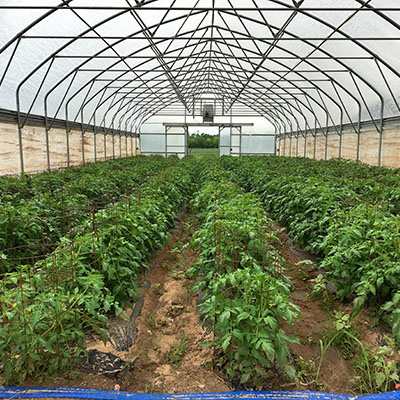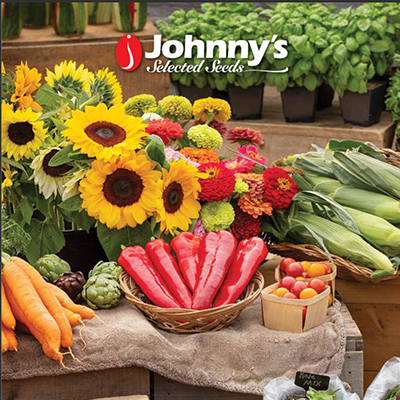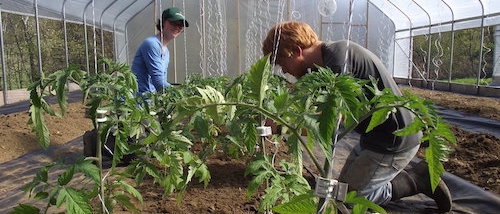Growing for Market in partnership with Johnny's Selected Seeds has created a library of expert information about growing and selling vegetables and flowers. Links in the article will take you to johnnyseeds.com.
Subscribe to Growing for Market for more great ideas about growing and marketing!
For more topics in the series, click on Market Farming Basics in the left column.

 The popularity of pelleted seeds
continues to grow among market farmers and serious gardeners. Pelleting
is a process in which small or irregularly shaped seeds are coated with
an inert material to make them round and uniform. The benefits of
pelleting are numerous:
The popularity of pelleted seeds
continues to grow among market farmers and serious gardeners. Pelleting
is a process in which small or irregularly shaped seeds are coated with
an inert material to make them round and uniform. The benefits of
pelleting are numerous:Pelleted seeds can be planted with a mechanical seeder. The uniformity of shape and additional weight of the pellet make it possible to plant even tiny seeds directly to the field using a seeder.
Pelleted seeds can be spaced regularly, either with a seeder or by hand. Even spacing prevents the need for thinning later on. The development of pelleted seeds is often attributed to California outlawing the use of short-handled hoes on vegetable farms, which were widely used to thin and weed but caused worker injuries. When plants are evenly spaced, workers can use long-handled hoes.
With root and bulb crops such as onions, carrots and parsnips, even spacing results in straighter, more uniform roots because each plant has the same amount of soil in which to grow. The occurrence of small or deformed roots is much less common from pelleted seeds.
Pelleted seeds are often used for growing plugs. The pellets allow for easy use of a hand-held seeder and precise placement of one seed per plug.
Some seeds, particularly lettuce, are primed before pelleting, which begins the metabolic process leading to germination. Because some of the early steps toward germination are completed before the seed is planted, germination happens more quickly.
Germination times can be 50% faster with primed seed. When seeds germinate quickly, they may avoid potential problems including soil crusting, weeds, and soilborne diseases. On the down side, primed seed doesn’t have the same storage life as unprimed seeds, so we recommend that you purchase only enough for the current season.
Visit Johnny's Selected Seeds for more free information about growing produce, herbs, cover crops and flowers.
Subscribe to Growing for Market for the latest news and ideas.
Reprinted from JSS Advantage January 2012
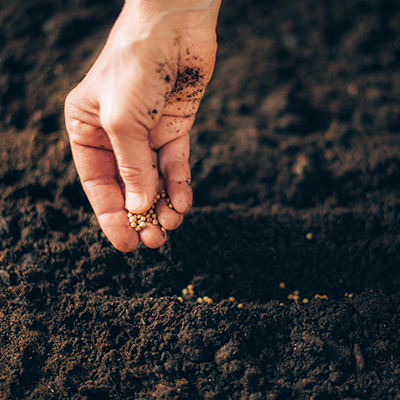

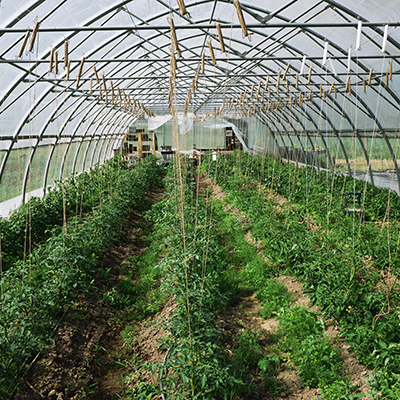
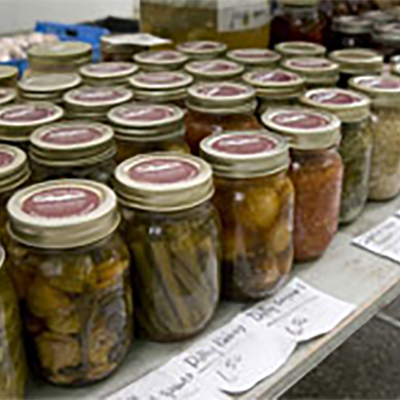
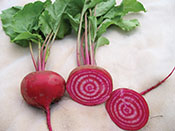 August can be a busy month. Summer crops are at their peak and fall crops need attention. It's time to look ahead to fall and winter markets. Yet, it may still be so hot you just don't want to do anything! We'll suggest some practical ideas and, we hope, provide some encouragement to keep you going.
August can be a busy month. Summer crops are at their peak and fall crops need attention. It's time to look ahead to fall and winter markets. Yet, it may still be so hot you just don't want to do anything! We'll suggest some practical ideas and, we hope, provide some encouragement to keep you going.